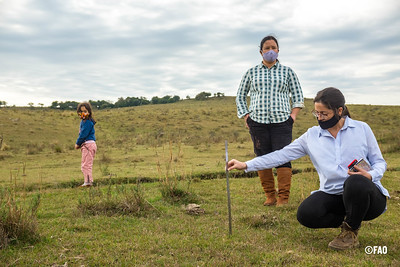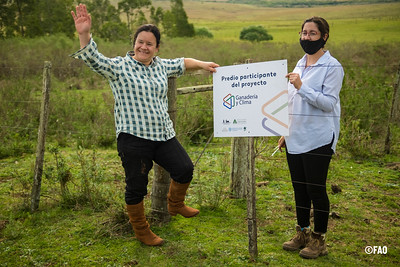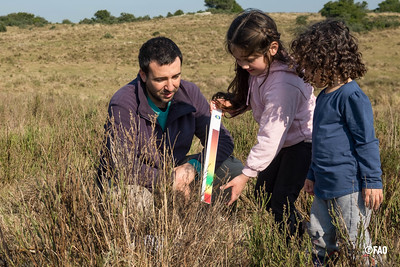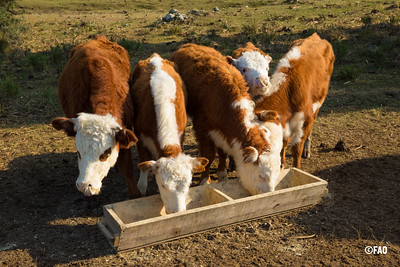
Sustainable Livestock Farming in Latin America and the Caribbean
Sustainable livestock farming refers to a set of livestock production systems based on best practices aimed at improving productivity without harming ecosystems, while also preserving the raw materials and natural resources used in production.
Activities related to animal production (small-scale production, poultry, rabbits, pigs, cattle) are closely linked to family and subsistence agriculture, providing a protein source for communities as an alternative. This occurs in a scenario where they must also adapt to climate change and crises.
Therefore, sustainable livestock farming plays a significant role in nutrition, food security, and livelihoods.
Livestock systems are key to the economy of Latin America and the Caribbean (LAC). Sustainable pastoral livestock farming in areas with natural grasslands is essential for ecological balance and its ability to provide goods and environmental services to humans through the grazing of large herbivorous animals. This creates significant opportunities for biodiversity conservation, the preservation of natural resources, and sustainable production in regions with a strong livestock tradition.
The emphasis that sustainable livestock activities place on soil health, increased carbon capture, and organic matter generation has a positive impact on environmental health, the economic security of farmers, and the nutritional health of consumers.
Furthermore, sustainable livestock farming can contribute to reversing environmental degradation and mitigating climate change.
Latin America and the Caribbean account for 28% of the world's cattle population, beef production, and milk production. Additionally, the region represents 44% of global beef exports and 42% of chicken production, playing a crucial role in global food and nutritional security.
The majority of livestock producers in the region are small-scale farmers and families who produce a minimal surplus for commercialization, which often constitutes their primary or sole source of income.

FAO's Work
At FAO, we promote initiatives for low-emission and environmentally responsible livestock production, which we refer to as sustainable and regenerative livestock farming. Advances in animal nutrition and health, as well as the incorporation of biotechnology, among many others, are some examples of the path to be followed.
FAO supports countries in implementing actions in the livestock sector, achieving encouraging results, and demonstrating that livestock farming can provide comprehensive solutions to address climate change, food insecurity, and ecosystem degradation.
Following the mandate of the Technical Secretariat of the Livestock Commission for Latin America and the Caribbean (CODEGALAC), we offer technical assistance to countries for the execution of actions based on the new strategic framework and regional priorities.
In July 2023, the XVI edition took place with the participation of representatives from 20 countries in Latin America and the Caribbean, achieving significant progress in sustainable and regenerative livestock production, certification mechanisms, as well as the role and challenges faced by small-scale producers.
In recent years, 33 projects related to livestock sustainability in Latin America and the Caribbean have been recorded with the support of FAO. Many of them have demonstrated that environmentally friendly practices, such as pasture management and waste handling, can increase profitability and production while simultaneously reducing greenhouse gas emissions.

Examples in countries
The Livestock and Climate Project in Uruguay shows that through better pasture management, complemented by herd management practices and innovative technical assistance approaches, beneficial results can be achieved for producers, their families, and the environment. Data from the project's first year of implementation (2020 to 2021) indicate that participating producers on 61 pilot farms are transforming 35,000 hectares of pastures. Thanks to the project, beef productivity increased by approximately 6%, production costs decreased by 6% per hectare, animal stocking rates reduced by 7%, producer incomes increased by 12%, and emissions per unit of animal product decreased by 27%.
In Ecuador, between 2016 and 2020, the Ministry of Agriculture and Livestock and the Ministry of Environment, Water, and Ecological Transition, with support from FAO and funded by the Global Environment Facility (GEF), implemented the "Climate-Smart Livestock" Project, which proved effective in increasing productivity while reducing greenhouse gas emissions and/or increasing carbon sinks, as well as adapting the social and ecological system to the effects of climate change. It was implemented in seven provinces through 165 pilot farms, with practices replicated in approximately a thousand livestock farms over four years. The project benefited more than 40,000 hectares, and the results showed a 15% increase in livestock farmers' incomes and a 12% increase in productivity. The project tested technology adoption rates and achieved average emission intensities of approximately 43% less for milk and 20% less for beef compared to the national average.
Since December 2018, the government of the Dominican Republic, with technical assistance from FAO, has implemented the "Promoting Climate-Smart Livestock Management in the Dominican Republic" project with the aim of reducing greenhouse gas emissions through gender-focused good livestock practices to improve productivity, profitability, and simultaneously reverse land degradation and the economic vulnerability of family producers in rural communities. Some results include a 117% increase in milk production in two years and a 19% reduction in greenhouse gas emissions. Additionally, there has been an increase in pasture and forage availability, greater vegetation coverage on farms, and consequently, greater carbon sequestration.
Livestock can be part of the solution to climate challenges. Research, adoption of innovative practices, and scaling up proven experiences, along with the necessary resources, can lead to significant impacts.
Family livestock production
Family livestock production plays a major role in resolving the problem of hunger in the region. Small-scale livestock production can and does generate a significant part of the food needed for the domestic market of Latin American and Caribbean countries, improving food and nutritional security and thus contributing significantly to national development.
Family or backyard livestock production contributes to growth in gross domestic product. In some cases it helps to boost exports of livestock products and generate employment as well as constituting a source that generates nutrients for consumption and is a key factor in the fight against food insecurity and ensuring sustainable rural development.
Related News

Diseases without borders: FAO and the CVP trained more than 40 veterinarians from the Southern Cone in animal health emergencies
11/11/2022
Suggested Websites
Publications

Documents (in Spanish)
Contact
Communications Consultant for the Regional Initiative on Sustainable and Resilient Agriculture
FAO Regional Office for Latin America and the Caribbean




